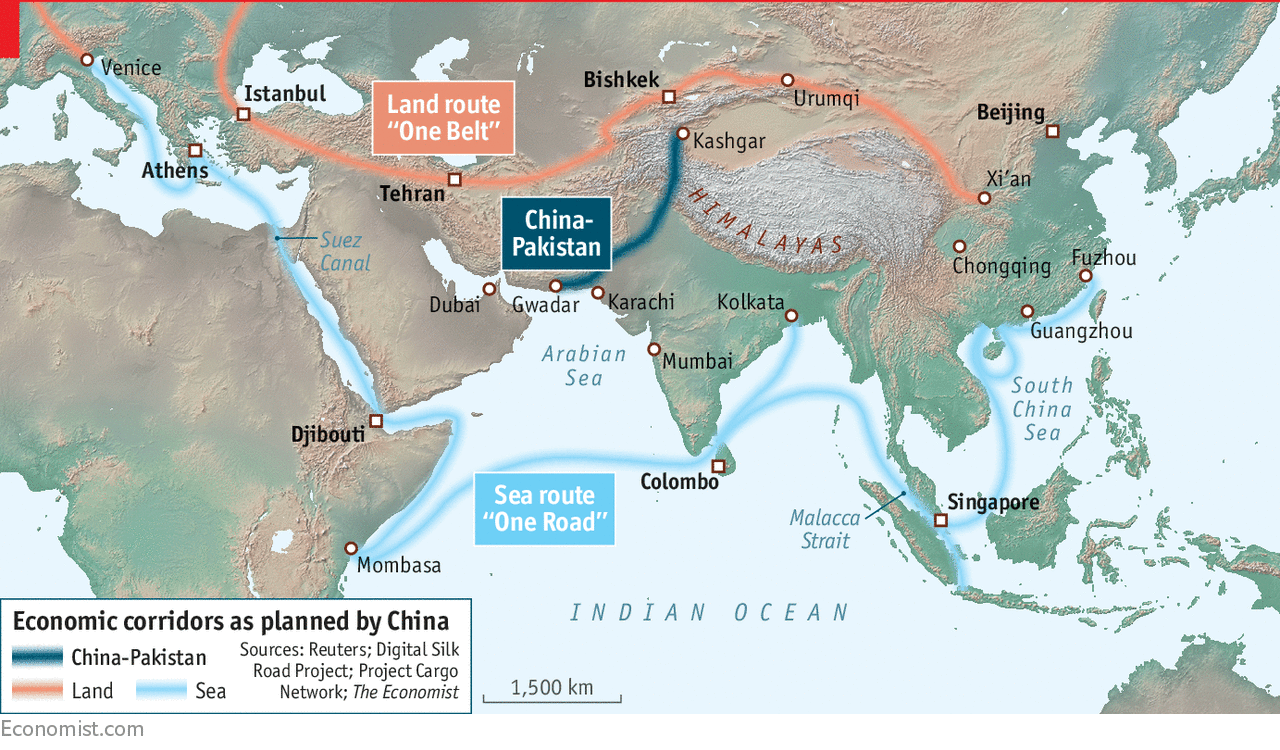THE ECONOMIST

Move over, Dubai. Some day soon, cruise ships will disgorge frolicking pensioners not by the palm-fringed Persian Gulf but on the balmy Pakistan Riviera. From the muddy delta of the Indus to the barren Baloch coast, a twinkling constellation of attractions is set to rise: luxury hotels, water parks, golf courses, health spas, yacht harbours, night clubs, the works. To top it all, this “vacation product” will be developed in such a way that “Islamic culture, historical culture, folk culture and marine culture shall all be integrated.”
Or so promises a prospectus, drafted for the Chinese government by the China Development Bank, that sets out a detailed vision of the China-Pakistan Economic Corridor (CPEC). Billed as a flagship of China’s $900bn One Belt, One Road initiative to build an Asia-wide infrastructure system tying China more firmly to its markets, CPEC promises to inject some $60bn of Chinese investment into Pakistan. More than half is earmarked for power generation, but there is plenty left over for roads, seaports, airports, fibre-optic cables, cement factories, agro-industry and tourism.
For a country that has struggled to nudge its capital-investment ratio to 15% of GDP—compared with around 30% for India and 28% for Bangladesh in recent years—this gush of Chinese money comes as a godsend. Not only does it promise to energise the economy and fix such problems as chronic power shortages; it represents a strategic insurance policy against India. China has long been Pakistan’s chief arms supplier, and has quietly provided diplomatic cover and technical aid for its nuclear programme. As Chinese officials are fond of saying, China is an “all-weather friend”—unlike America, which has lavished some $78bn in economic and military aid on Pakistan since independence, but periodically gets stingy when Islamabad fails to curb terrorists.
Yet when Dawn, a Karachi daily, published excerpts from the CPEC plan in May, many Pakistanis were perturbed by what they read. Among other things, the plan envisages a big role in Pakistan’s agriculture for the Xinjiang Production and Construction Corps (XPCC), an arm of China’s defence ministry that since the 1950s has spearheaded the settlement of Han Chinese in the western border region. It is administratively autonomous, running whole cities as well as giant farms and industries, and is responsible for about 3m people, organised in army-style units. Military training comes in handy when Xinjiang’s Muslim Turkic-speaking Uighur natives grow restless. “There is a hue and cry here when some town in Switzerland limits the size of minarets, but not a peep when China bans Muslim names, or limits the length of beards in Xinjiang,” notes a Pakistani journalist.
Economist for more
